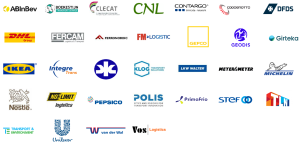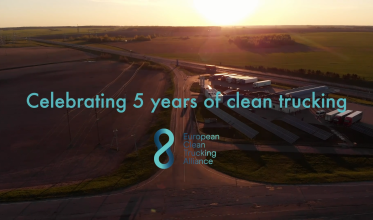The European Clean Trucking Alliance unveiled 15 recommendations for the financing of zero-emission trucks to help operators move to zero-emission trucking.
Although zero-emission trucks (ZETs) have gained substantial momentum in recent years across the EU, fleet owners and operators still face significant barriers to their adoption. Financing mechanisms and innovative business models for ZET adoption must address the high upfront capital cost of both vehicles and their infrastructure since many fleet owners, particularly Small and Medium Enterprises (SMEs), lack the financial capacity to make large capital investments.
A study commissioned to Ricardo AEA by the European Clean Trucking Alliance and published on 21 March identifies key financing needs and barriers of the logistic sector to transition to zero-emission trucks. The study proposes tailored solutions that mitigate their impact.
It explores various financing mechanisms available to shippers, carriers and logistic companies for the adoption of ZETs. This includes, among others, traditional loans, grants, tax incentives, and innovative financial instruments such as green bonds or green premiums.
The study also assesses emerging business models that can facilitate the adoption of ZETs (e.g., truck-as-service).
Overall, the analysis revealed that:
- Government-supported mechanisms (concessional loans, subsidies and grants, tax benefits) are suitable to support the ZET transition. But they are undermined by limited accessibility and/or availability related to changing political circumstances.
- Credit guarantees and collective purchase agreements are relevant mechanisms to de-risk the upfront investment. Guarantees could play an important role in minimising the risks associated with the residual value of ZETs.
- Leasing models are suitable and flexible to support the adoption of ZETs. But they are also plagued by the uncertainties around the residual value of ZETs.
- Loans seem to be less flexible to adapt to the fast technology change and less used under the current circumstances. But there is potential to leverage traditional banking to support the ZET transition.
- Service-based models appear to be relevant to support the adoption of ZETs. But they are newer mechanisms and their availability is still limited. There are also still operational uncertainties.
15 recommendations are proposed to:
- Enhance public intervention, including to reinforce government commitments (subsidies, grants, tax benefits).
- De-risk investments and address residual value uncertainties, including with the provision of government-supported residual value guarantees or with awareness raising and collective purchase agreements.
- Leverage traditional banking to support the ZET transition.
- Diversify and improve access to finance, by either diversifying financing sources beyond traditional banks or establishing private partnerships for large firms to financially support their SME suppliers.
The study and the full set of recommendations are available on the website of ECTA here.
Press contact
Martin Burgat, Secretary of the European Clean Trucking Alliance
More about the European Clean Trucking Alliance
The European Clean Trucking Alliance is a coalition of over 35+ companies and organisations active in logistics, consumer goods, manufacturing, retail and supply chain management from across Europe calling for zero-emission road freight. ECTA members employ over 2.3 million people and use a total road fleet size of over 380,000 vehicles.






